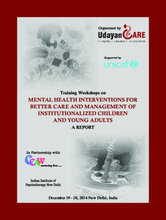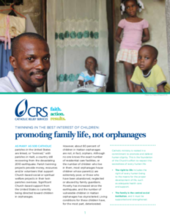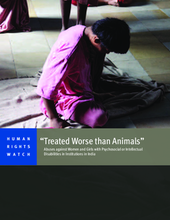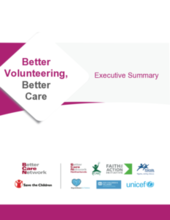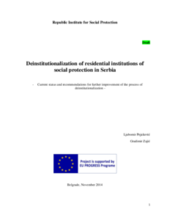Displaying 461 - 470 of 721
This report documents Ukraine’s Soviet-era system of orphanages and other institutions for children with disabilities. The report details the violence, exploitation, and other human rights violations that are frequently committed against these children. It also shows how families who wish to keep their children with disabilities at home are often forced to institutionalize them as a result of lack of support.
The report from the two-day Training Workshops on “Mental Health and Interventions for Better Care and Management of Institutionalized Children and Young Adults” is now available.
This document, published by Catholic Relief Services, urges members of the Catholic faith community to consider the best interests of the child when partnering, or “twinning” with parishes in Haiti and undertaking charitable activities.
Anna McKeon, consultant for the Better Volunteering Better Care initiative, presented at a launch event of a new report on orphanage volunteering from Next Generation Nepal.
This report documents the involuntary admission and arbitrary detention of women and girls with mental health disabilities in mental hospitals and residential care institutions across India.
This Excutive Summary is developed by the Better Volunteering Better Care
The video discusses the institutionalization of eight million children in Central and Eastern Europe following the fall of the Berlin Wall, and underscores that many of the children these orphanages have families.
This podcast is a presentation given by Kate Van Doore at the Interdisciplinary Conference on Human Trafficking held on October 9-11 2014 at the University of Nebraska.
This report gives an overview of implemented activities in the process of deinstitutionalization, identifying the main obstacles, effects, and achieved results. The overall objective of the report is to achieve greater understanding of the progress and shortcomings of the process of deinstitutionalization and transformation of social protection in Serbia, and to analyze relevant policies that will provide input for the creation of new measures for further support of the reform process of social protection in Serbia.
This paper presents the findings of an exploratory research study of foster care youth residing in group homes in a mid-Atlantic state in the USA.


